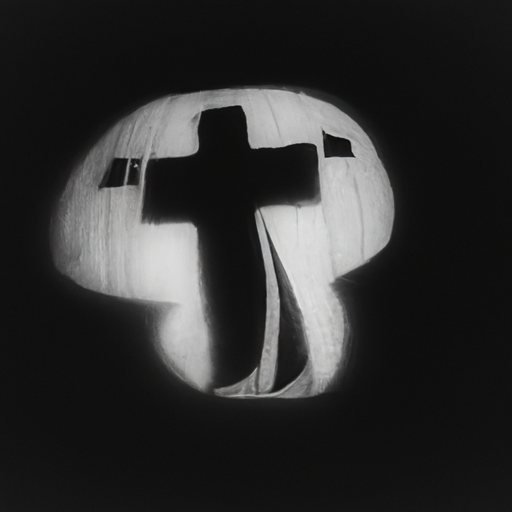Is Halloween Christian? Unearthing the Top 5 Spine-Chilling Origins Every History Buff Should Know
Are you wondering if Halloween has any connection to Christian beliefs? While Halloween is widely associated with ghosts, costumes, and candy, it’s essential to explore its roots and understand its connection to Christianity. In this article, we will delve into the topic of whether Halloween is Christian, shedding light on its historical origins, traditions, and the influence of Christian beliefs. By the end, you’ll have a clearer understanding of the relationship between Halloween and Christianity, allowing you to appreciate this festive occasion from a new perspective.
Halloween, a widely celebrated holiday, has both pagan and Christian origins. It has often been surrounded by debates concerning its compatibility with Christian beliefs and practices. In this article, we will explore the origins of Halloween, examine Christian perspectives on the holiday, consider arguments against Halloween from a Christian viewpoint, delve into theological debates, analyze the historical context, discuss Christian alternatives to Halloween, and reflect on the role of culture and context. By exploring these aspects, we aim to shed light on the question: Is Halloween Christian?
Overview of Halloween
Halloween, celebrated on October 31st, is a holiday known for its association with costumes, trick-or-treating, pumpkin carving, and spooky decorations. It is believed to have originated from the ancient Celtic festival of Samhain, which marked the end of the harvest season and the beginning of winter. Over time, Halloween has evolved to incorporate various cultural and religious elements, including Christian influences.
Origins of Halloween
The origins of Halloween can be traced back to the ancient Celtic festival of Samhain. The Celts believed that on the night of October 31st, the boundary between the living and the dead was blurred, allowing spirits to roam the earth. To ward off these spirits, people would dress up in costumes and carve turnips into lanterns. When Christianity spread to the Celtic lands, Pope Boniface IV designated November 1st as All Saints’ Day, a day to honor saints and martyrs. The evening before, October 31st, became known as All Hallows’ Eve, eventually shortened to Halloween.
Christian Perspectives on Halloween
Christian perspectives on Halloween vary among different denominations and individuals. Some Christians celebrate Halloween as a secular holiday, participating in costume parties and trick-or-treating without associating it with any religious significance. Others view Halloween as conflicting with their Christian beliefs due to its pagan origins and associations with the occult.
Arguments Against Halloween from a Christian Perspective
Those who argue against the celebration of Halloween from a Christian perspective often highlight its pagan roots and connections to occult practices. They may point out that participating in Halloween activities can potentially glorify darkness and evil. Some Christians believe that engaging in activities such as dressing up as witches, vampires, or other supernatural beings goes against biblical teachings on avoiding the appearance of evil.
Theological Debates
The question of whether or not Christians should celebrate Halloween has sparked theological debates. One of the main points of contention is the distinction between the cultural aspects of Halloween and its religious or spiritual connotations. Some argue that Christians can reclaim Halloween by focusing on its historical and cultural significance, while others believe that its pagan roots are too deeply intertwined to be separated from its observance.
Historical Context
Understanding the historical context of Halloween can provide insight into its development and meaning. As Christianity spread throughout Europe, the Church often incorporated existing pagan festivals and practices into its own traditions. This was done in an attempt to incorporate and Christianize existing customs, allowing converts to feel more comfortable with their new faith. Halloween is one such example of a pagan festival that was adapted by the Church.
Christian Alternatives to Halloween
For Christians who choose not to celebrate Halloween, there are alternative activities that emphasize the positive aspects of the season. Some churches and Christian organizations organize harvest festivals or trunk-or-treat events as alternatives to traditional Halloween festivities. These events provide a safe and family-friendly environment for children and allow them to enjoy the fun of dressing up and receiving treats without the negative associations some may have with Halloween.
The Role of Culture and Context
The question of whether Halloween is Christian or not is also influenced by the cultural and contextual factors at play. Different cultures and regions have their own unique traditions and perspectives on Halloween. What may be considered harmless fun in one culture can be seen as offensive or problematic in another. It is important to consider the cultural and historical context in which Halloween is celebrated before making judgments about its compatibility with Christianity.
Conclusion
In conclusion, the question of whether Halloween is Christian is a complex one that does not have a definitive answer. Halloween has its origins in pagan festivals but has also been influenced by Christian traditions. Christian perspectives on Halloween vary, with some embracing it as a secular holiday and others viewing it as conflicting with their faith. Ultimately, the decision of whether or not to celebrate Halloween is a personal one, guided by individual beliefs, theological interpretations, and cultural context. Regardless of one’s stance on Halloween, it is important to approach the topic with respect and understanding for differing viewpoints.













